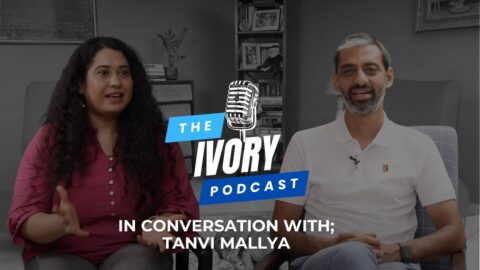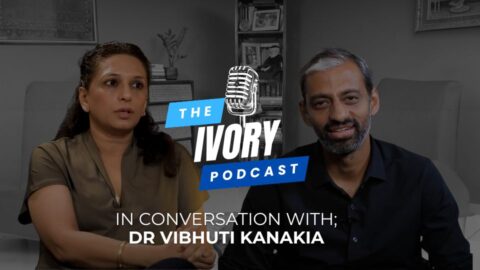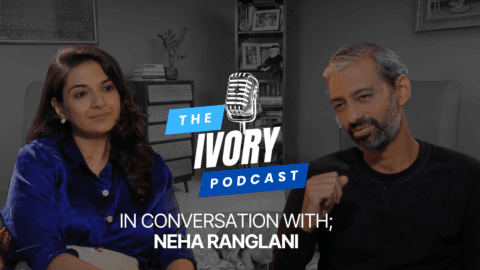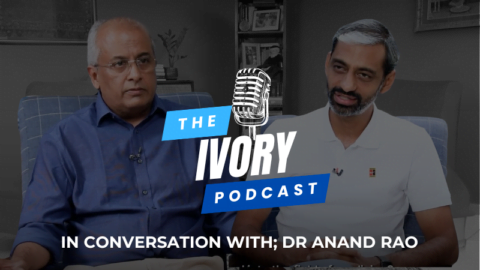First things first, what is the The Ivory Podcast?
“Is ageing gracefully really within our control?”
That’s the question at the heart of The Ivory Podcast. Most health podcasts in India seem to skip over a pretty important group. Yep, we’re talking about the young-at-heart crowd – the ones who’ve celebrated more birthdays than the rest of us.
We bring together a diverse mix of guests, including health coaches, nutritionists, psychologists, doctors, and business professionals. They share insights and truths about the ageing process. It’s not just talk; it’s about understanding what really happens as we grow older. So, join us on the Ivory Podcast. It’s like sitting down for a cup of tea with friends who know a thing or two about growing older gracefully and taking care of our brain health. Considering this, we chatted with professional and personal caregiver Ramani Sundaram, a Neuroscientist and Deputy Director of Nightingales Medical Trust, Dementia India Alliance.
Ramani Sundaram: A Compassionate Force in Dementia Care
Here is a little bit of what the Ivory team thinks about her:
Ramani Sundaram brings a unique blend of professional expertise and personal warmth to our discussions. As a neuroscientist and Deputy Director at Nightingales Medical Trust and Dementia India Alliance, her deep understanding of dementia is paired with an empathetic approach that truly resonates. During our conversation, one of the most impactful moments was her focus on the dignity and capabilities of those living with dementia. Her insights remind us that, with the right care, there’s always a way to find connection and hope.
Ramani, your wisdom and compassion left a lasting impact on us. Thank you for sharing not just your expertise but your heart. We walked away inspired and deeply moved by your dedication to making a difference in the lives of those affected by Dementia.
With Gratitude,
Team Ivory
Now here is a little bit of what you should know about her work:
Ramani Sundaram is a distinguished neuroscientist and a dedicated advocate for dementia care. As the Deputy Director at Nightingales Medical Trust and Dementia India Alliance, she is pivotal in advancing care practices and raising awareness across India. Her journey, driven by both professional dedication and personal caregiving experiences, has made her a respected voice in the field. Ramani’s work is a testament to the power of combining scientific knowledge with compassionate care, helping countless families navigate the challenges of dementia with dignity and hope.
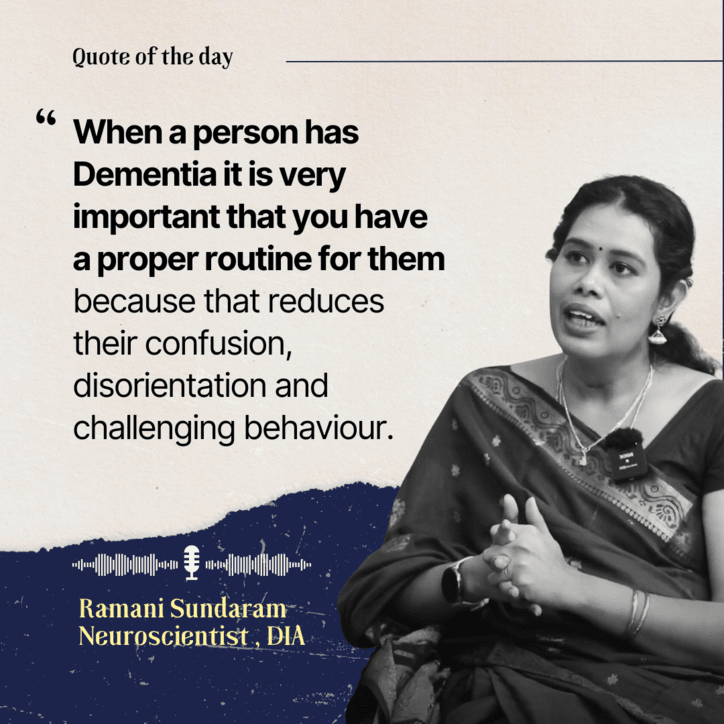
Let’s start 11 questions with Mrs Sundaram:
1. How did you begin your journey in dementia caregiving?
It all started with my master’s in clinical neuroscience, where my heart naturally gravitated toward geriatric care. When I began working with dementia patients, I realised that this journey was about more than just research; it was about genuinely helping people and their families navigate this challenging path.
2. What’s the most challenging part about working in dementia care?
The most challenging part is witnessing families grappling with the heartbreaking reality of dementia. Seeing someone you love not recognise you anymore—it’s devastating. I’ve learned that taking breaks to recharge is essential, not just for me, but to continue being there for those who need support the most.
3. What advice do you give to families when someone is diagnosed with dementia?
I always stress the importance of early diagnosis. It gives families a chance to plan, both emotionally and financially. Understanding what lies ahead makes it easier to prepare for the caregiving journey, helping everyone manage the challenges better.
4. Why is early diagnosis so crucial in dementia care?
Early diagnosis is like opening a window to manage the disease better. Sadly, many people brush off early symptoms as part of ageing. However, recognising the signs early can make a difference in improving the person’s quality of life.
5. How can the Indian healthcare system better support dementia patients?
The key lies in education, especially for primary healthcare providers. Making cognitive screenings a routine part of checkups could change so much. With greater awareness and early detection, we can help people live better, fuller lives.
6. What misconceptions about dementia would you like to correct?
There’s this misconception that dementia patients should be treated like children or that they’re just “sick.” But these individuals have lived rich lives and still have so much to offer. We should focus on their strengths and abilities, not just their limitations.
7. What can families do to manage the caregiving stress?
Caregivers must set boundaries and know it’s okay to ask for help. Open communication within the family is also crucial. Caregivers must also take care of their own health—both mental and physical—to sustain the energy needed for caregiving.
8. What’s a typical day like in a dementia care centre?
Our days are carefully structured with activities that stimulate both the mind and body—like cognitive exercises, physical activities, and social interactions. This routine helps reduce confusion and keeps patients feeling more connected and engaged.
9. Why is dementia care in India unique compared to the West?
What’s unique about India is our family-centred approach and the relatively lower cost of care. Families here are deeply involved in caregiving, which helps maintain a strong connection and provides a more personalised touch to the care.
10. What’s your message of hope for families dealing with dementia?
I want families to see dementia as something that can be managed, much like any other chronic condition. Staying active, staying engaged, and focusing on the quality of life can make all the difference. With the right care and support, there’s hope in making the most of each day.
11. What inspires you to continue working in dementia care, despite the challenges?
What inspires you to continue working in dementia care, despite the challenges?
The inspiration comes from the small victories and moments of connection I witness every day. Whether it’s seeing a patient smile because they remember a cherished memory or a family finding comfort in knowing they are not alone, these moments remind me why this work is so important. It’s about making a difference, even if it’s just for one person, one day at a time. That’s what keeps me going.
We’ve summarised this engaging podcast into a Q&A format to highlight the key insights for you. But if you’d like to experience the full conversation, you can listen to the entire episode here.
The Takeaway
In our heartfelt conversation with Ramani Sundaram, we explored the profound challenges and rewards of dementia caregiving. Ramani’s deep understanding of dementia, both as a neuroscientist and as a personal caregiver, offers invaluable guidance for families navigating this difficult journey. She emphasised the importance of early diagnosis, the power of routine and engagement, and the need for self-care among caregivers.
Ramani’s compassionate approach reminds us that, even in the face of dementia, there is hope and a way forward. Her insights inspire us to focus on what can be done to enhance patients’ and their families’ quality of life.

